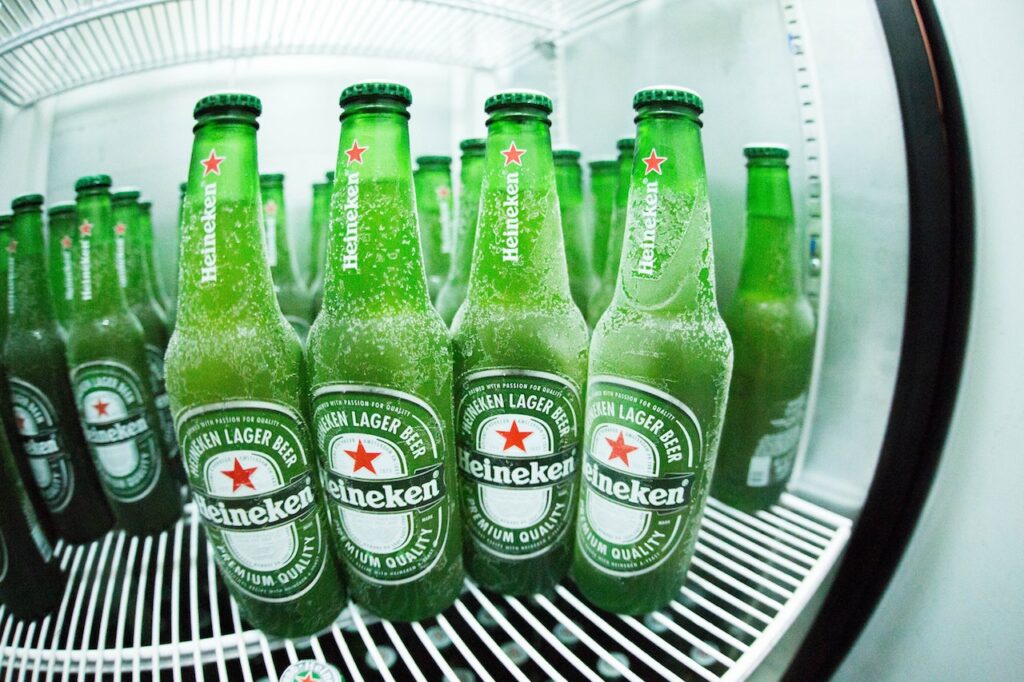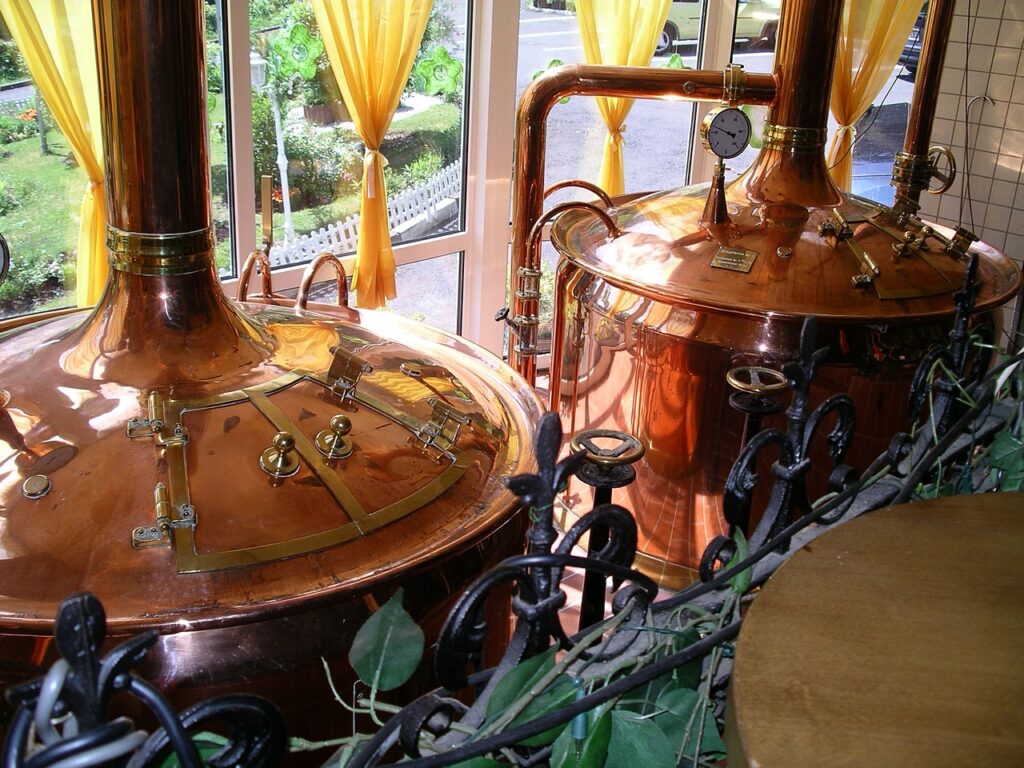
Interesting Facts About Alcohol (The Best 57)
Interesting Facts About Alcohol
Alcohol has been a part of human civilization for thousands of years. From the ancient Egyptians to modern-day celebrations, alcoholic beverages have played a significant role in cultures worldwide. But how much do we truly know about this ubiquitous substance? In this article, facts about alcohol we’ll uncover some of the most interesting facts about alcohol, shedding light on its history, effects, and the many ways it intertwines with our lives.
A Brief History of Alcohol in the United States
The 18th Century and the Rise of Alcohol: The United States has a rich history with alcohol. In the 18th century, it was not uncommon for people to start their day with a small amount of alcohol. In fact, hard liquor, like whiskey and rum, was a staple in many households.
Prohibition and its Effects: The national survey of the 1920s revealed a surge in alcohol abuse, leading to the infamous Prohibition era. This period saw a ban on the sale and consumption of alcoholic drinks, but ironically, binge drinking and underground speakeasies flourished.
The Science Behind Alcohol and the Human Body
How Alcohol Affects the Body: When consumed, alcohol enters the bloodstream through the small intestine. It acts as a central nervous system depressant, slowing down the body’s functions. As a result, this can lead to changes in heart rate, body temperature, and blood sugar levels.
The Good and the Bad: Moderate drinking, especially of red wine, has been linked to certain health benefits. Including a reduced risk of heart disease. However, excessive drinking can lead to a host of problems, including liver cirrhosis, high blood pressure, and cardiovascular disease. therefore the World Health Organization has highlighted the dangers of alcohol misuse, emphasizing its link to chronic disease and other health issues.
Types of Alcoholic Beverages and Their Effects
The Variety of Alcoholic Drinks: From light beer to the world’s strongest beer, the range of alcoholic beverages is vast. Each type of alcohol, whether it’s ethyl alcohol in hard liquor or the alcohol in a standard drink like beer or wine, has its unique effects on the body.
The World’s Most Popular Alcohol: Despite popular belief, the world’s most popular alcohol isn’t whiskey or vodka, but a product by Anheuser-Busch InBev SA. This company has dominated the global market, introducing various alcoholic products that have become household names.

Facts About Alcohol FAQs
What is the legal drinking age in the United States?
The legal limit for drinking in the United States varies by state, but most have set the legal drinking age at 21.
How does alcohol cause liver disease?
Excessive and heavy drinking over a prolonged period can lead to liver disease, including liver cirrhosis.
Is there a genetic component to alcohol dependence?
Yes, research has shown that there’s a genetic component to alcohol use disorder, making some individuals more susceptible to developing an addiction.
Interesting Facts About Alcohol Conclusion (To be continued…)
The world of alcohol is vast and multifaceted. From its historical significance to its impact on the human body, there’s much to learn and understand. As we continue to explore more interesting facts about alcohol, it’s essential to approach the topic with empathy and a genuine desire to educate.
Note: The fact included in this segment is that moderate drinking, especially red wine, has been linked to certain health benefits. Including a reduced risk of heart disease. This fact is supported by numerous studies and health organizations.
The Global Impact of Alcohol
Alcohol Consumption Around the World: Alcohol is consumed in various forms across the globe. From the vineyards of France to the breweries of Germany, each region has its unique alcoholic beverages and drinking customs. The World Health Organization has noted that alcohol intake varies significantly between countries, with some nations having a higher prevalence of heavy alcohol use than others.
The Role of Alcohol in Social Gatherings: In many cultures, alcoholic drinks play a pivotal role in social gatherings and celebrations. Whether it’s a toast at a wedding or a drink with friends at a local pub, alcohol often serves as a medium for bonding and creating memories.

Facts About Alcohol: The Dark Side of Alcohol
The Reality of Alcohol Abuse: While many enjoy alcohol responsibly, there’s a darker side to its consumption. Alcohol abuse and alcohol use disorder are serious issues affecting millions worldwide. The National Institute on Alcohol Abuse and Alcoholism has highlighted the dangers of excessive drinking, noting its link to mental health problems, family disruptions, and even premature death.
Binge Drinking and its Consequences: Binge drinking, defined as consuming a large amount of alcohol in a short period of time, is a concerning pattern of drinking. It can lead to alcohol poisoning, a potentially fatal condition where the blood alcohol concentration reaches dangerous levels. College students, in particular, are at a greater risk of binge drinking, leading to a range of alcohol-related problems, from academic issues to sexual assaults.
The Physical and Mental Toll: Alcohol affects every organ in the human body. From the brain cells it damages to the blood vessels it constricts, the effects of alcohol can be profound and long-lasting. Mental health issues, such as depression and anxiety, are also exacerbated by excessive alcohol consumption.
The Health Implications of Alcohol
The Double-Edged Sword: While moderate alcohol consumption has been linked to certain health benefits. Such as a reduced risk of heart attack and colorectal cancer, heavy drinking poses significant health risks. Liver disease, high blood pressure, and cardiovascular disease are just a few of the conditions associated with excessive alcohol intake.
Alcohol and Chronic Diseases: The Centers for Disease Control and Prevention (CDC) have noted that alcohol misuse can lead to chronic diseases, including liver cirrhosis and certain types of cancer. Moreover, alcohol-related deaths are a significant concern. With many fatalities resulting from accidents, injuries, and alcohol-related causes.

Did You Know? Interesting Facts About Alcohol
- The World’s Strongest Beer: The title for the world’s strongest beer goes to a brew with an alcohol content of over 60%. It’s a testament to the creativity and innovation of brewers worldwide.
- Blue Eyes and Alcohol: An intriguing study found that individuals with blue eyes might have a higher tolerance for alcohol. While the reasons are still being researched. It’s an interesting fact that adds to the mystique of alcohol.
- Alcohol and Body Temperature: Contrary to popular belief, alcohol doesn’t warm the body. In fact, it can lower body temperature, making one feel colder in chilly conditions.
Interesting Facts About Alcohol Conclusion (To be continued…)
Alcohol’s role in society is multifaceted. While it brings joy and camaraderie to many, it also poses significant health and societal challenges. As we delve deeper into the world of alcohol, it’s crucial to strike a balance between enjoyment and responsibility.
The Cultural Significance of Alcohol
Alcohol in Religious Practices: Throughout history, alcohol has held a sacred place in various religious ceremonies. From the use of wine in Christian Eucharist to the consumption of sake in Shinto rituals, alcohol has been a symbol of divinity and communion with the divine.
Festivals and Celebrations: Around the world, festivals like Oktoberfest in Germany and the Wine Festival in Spain celebrate the cultural significance of alcoholic beverages. These events not only honor the tradition of brewing and winemaking but also bring communities together in joyous celebration.
The Economic Impact of Alcohol
The Alcohol Industry: The production and sale of alcoholic drinks contribute significantly to the global economy. From breweries to distilleries, the alcohol industry provides employment to millions and generates substantial revenue. Brands like Anheuser-Busch InBev SA have become global giants, influencing market trends and consumer preferences.
Tourism and Alcohol: Vineyard tours in France, whiskey trails in Scotland, and beer tastings in Belgium are popular tourist attractions. These experiences offer visitors a glimpse into the intricate processes of making their favorite drinks and the history and culture behind them.
Safety and Alcohol

Driving Under the Influence: One of the most dangerous consequences of excessive alcohol consumption is impaired driving. Blood alcohol concentration levels above the legal limit significantly reduce reaction times and judgment, leading to fatal accidents. In the United States, strict laws and campaigns aim to reduce alcohol-related road fatalities.
Alcohol and Young People: Underage drinking is a pressing concern. Early exposure to alcohol can lead to addiction and other health issues in adulthood. Organizations worldwide are working to educate young people about the risks associated with early alcohol consumption.
Health Benefits of Moderate Drinking
Red Wine and Heart Health: Numerous studies have highlighted the potential health benefits of moderate red wine consumption. Rich in antioxidants, red wine can improve heart health by reducing bad cholesterol and increasing good cholesterol levels.
Alcohol and Longevity: Some research suggests that moderate alcohol consumption can lead to a longer life. However, it’s essential to note that excessive drinking negates these benefits and can lead to a host of health problems.
The Psychological Aspects of Alcohol
Alcohol as a Social Lubricant: For many, alcohol acts as a social lubricant, easing social interactions and reducing inhibitions. This can lead to positive experiences, such as making new friends or enjoying a lively party.
Dependency and Mental Health: On the flip side, reliance on alcohol to navigate social situations can lead to dependency. Alcohol use disorder is closely linked to mental health issues. Like depression and anxiety. It’s crucial to recognize the signs of dependency and seek help if needed.
FAQs About Alcohol (Continued)
What is the nutritional value of alcoholic beverages?
While some alcoholic drinks, like red wine, contain beneficial antioxidants, most alcoholic beverages offer little to no nutritional value. It’s essential to consume them in moderation and as part of a balanced diet.
How does alcohol affect blood pressure?
Excessive drinking can lead to high blood pressure, increasing the risk of heart disease and stroke. However, moderate drinking might have a neutral or beneficial effect on blood pressure.

Interesting Facts About Alcohol Conclusion (To be continued…)
The complexities of alcohol are vast, spanning cultural, economic, and health dimensions. As we continue our exploration, it becomes evident that while alcohol offers moments of joy and celebration, it also demands respect and understanding.
The Evolution of Alcohol Consumption
Historical Perspective: Alcohol has been consumed by humans for millennia. Ancient civilizations, from the Mesopotamians to the Romans, had their own versions of alcoholic beverages. The 18th century saw a surge in its popularity, with many considering it safer to drink than water due to the lack of proper sanitation.
Modern Trends: Today, with the advent of craft breweries and artisanal distilleries, there’s a renewed interest in the art of making alcoholic beverages. From craft beers with unique flavors to spirits distilled using age-old techniques, the world of alcohol is ever-evolving.
The Medical Uses of Alcohol
Alcohol as Medicine: In the past, alcohol was often used for medicinal purposes. Ethyl alcohol, for instance, was used as an antiseptic and a pain reliever. Even today, alcohol is used in certain cough syrups and tonics. Albeit in regulated amounts.
Alcohol and Digestion: A small amount of alcohol, especially certain types like bitters, can aid digestion. It can stimulate the production of gastric juices, helping in the digestion of food. However, excessive drinking can have the opposite effect, leading to digestive issues.
The Societal Impacts of Alcohol
Alcohol and Crime: Excessive alcohol consumption has been linked to a rise in certain crimes. Especially those of a violent nature. From bar brawls to more severe offenses, alcohol can impair judgment and lead to aggressive behavior.
Family and Relationships: Alcohol misuse can strain family relationships. Children of parents with alcohol use disorder often face challenges, from neglect to abuse. It’s essential for family members to recognize the signs of alcohol misuse and seek help.
Facts About Alcohol: The Environmental Impact of Alcohol Production

Water Usage: The production of alcoholic beverages, especially beer and wine, requires significant amounts of water. However, with water scarcity becoming a global concern, many breweries and vineyards are adopting sustainable practices to reduce their water footprint.
Waste Management: The production process also generates waste, from spent grains in beer brewing to pomace in winemaking. Innovative solutions, like using waste as animal feed or compost, are being explored.
Facts About Alcohol: Debunking Myths About Alcohol
- Myth: Drinking coffee sobers you up: Contrary to popular belief, coffee doesn’t lower blood alcohol concentration. While it might make you feel more alert, it doesn’t speed up the metabolism of alcohol in the body.
- Myth: Eating before drinking prevents intoxication: While eating before drinking can slow the absorption of alcohol, it doesn’t prevent intoxication. It’s always essential to drink responsibly, regardless of whether you’ve eaten or not.
- Myth: Switching between beer, wine, and spirits makes you more drunk. It’s not the type of alcohol but the amount consumed that determines intoxication. Mixing drinks might lead to consuming more alcohol overall, but it’s the total intake that matters.
FAQs About Alcohol (Continued)
What’s the difference between alcohol dependence and alcohol abuse?
While both are problematic, alcohol dependence refers to a physical reliance on alcohol, often accompanied by withdrawal symptoms when not consumed. Alcohol abuse, on the other hand, refers to a pattern of excessive drinking that leads to harmful consequences.
How does alcohol affect sleep?
While alcohol might help individuals fall asleep faster, it can disrupt the sleep cycle, leading to poor quality sleep.
Interesting Facts About Alcohol Conclusion (To be continued…)
Alcohol, with its multifaceted nature, continues to be a topic of intrigue and debate. From its historical significance to its modern-day implications, understanding alcohol requires a holistic approach, considering its cultural, health, and societal impacts.
The Art and Craft of Alcohol Production

Traditional Brewing and Distillation: The creation of alcoholic beverages is an art form that has been perfected over centuries. As a result traditional methods of brewing beer and distilling spirits have been passed down through generations, with each region adding its unique touch. From the oak barrels used to age whiskey to the specific yeast strains chosen for fermentation, the nuances in production methods result in a diverse range of flavors and aromas.
Innovation in the Alcohol Industry: Modern technology has brought about innovations in the production of alcoholic beverages. Microbreweries experiment with unconventional ingredients, while distilleries use advanced techniques to enhance the purity and flavor of spirits. The fusion of tradition and innovation ensures that the world of alcoholic beverages remains dynamic and exciting.
Understanding Alcohol Labels
Decoding the Label: An alcohol bottle’s label provides valuable information about its contents. From the type of alcohol (e.g., ethyl alcohol) to its origin, understanding labels can enhance the drinking experience. For instance, the term “proof” on a liquor bottle indicates its alcohol content, with higher proof values signifying stronger drinks.
Regulations and Standards: Labels also adhere to regulations set by authorities. In the United States, the Alcohol and Tobacco Tax and Trade Bureau (TTB) oversees the labeling of alcoholic beverages, ensuring that consumers receive accurate information.
The Global Perspective on Alcohol Consumption
Drinking Cultures Worldwide: Different cultures have distinct drinking customs. In Japan, it’s customary to pour drinks for others. While in Russia, vodka is often consumed straight without mixers. Understanding these cultural nuances can enrich one’s global travel experiences.
Legal Drinking Ages: The legal drinking age varies worldwide. While the United States has set the age at 21, other countries, like Germany, allow beer and wine consumption at 16. These variations often reflect cultural attitudes towards alcohol.
The Health Risks of Excessive Alcohol Consumption

Short-Term Risks: Overindulgence in alcohol can lead to immediate risks such as accidents, injuries, and alcohol poisoning. Binge drinkers, especially young people, are particularly vulnerable to these dangers.
Long-Term Risks: Chronic excessive drinking poses severe health threats. From liver disease to mental health problems, the repercussions can be life-altering. Alcohol-related causes, such as liver cirrhosis and certain cancers, account for a significant number of deaths globally.
Facts About Alcohol: Promoting Responsible Drinking
Awareness Campaigns: Governments and organizations worldwide run campaigns highlighting the dangers of excessive alcohol consumption. From highlighting the risks of drunk driving to promoting moderation, these initiatives aim to reduce alcohol-related harm.
Support and Rehabilitation: For those struggling with alcohol use disorder, numerous support groups and rehabilitation centers offer help. These institutions provide the necessary tools and resources for individuals to overcome their addiction and lead healthier lives.
FAQs About Alcohol (Continued)
Is “light” beer healthier than regular beer?”
Light” beer typically contains fewer calories and less alcohol than regular beer. However, it’s essential to note that the term “light” refers to calorie content and not alcohol content.
How does alcohol interact with medications?
Alcohol can interfere with the effectiveness of certain medications and can even lead to harmful side effects. It’s crucial to consult with a healthcare professional before mixing alcohol with any medication.
Interesting Facts About Alcohol Conclusion
The journey through the world of alcohol is as complex as it is enlightening. From its historical roots to its modern-day significance, alcohol remains a topic of global interest. While it offers moments of celebration and camaraderie, it also demands respect and understanding. As with all things in life, moderation is key. By promoting responsible consumption and staying informed, we can enjoy the pleasures of alcoholic beverages while safeguarding our health and well-being. If you have found this article “facts about alcohol” beneficial please share it, thank you.



2 Comments
Pingback:
Pingback: